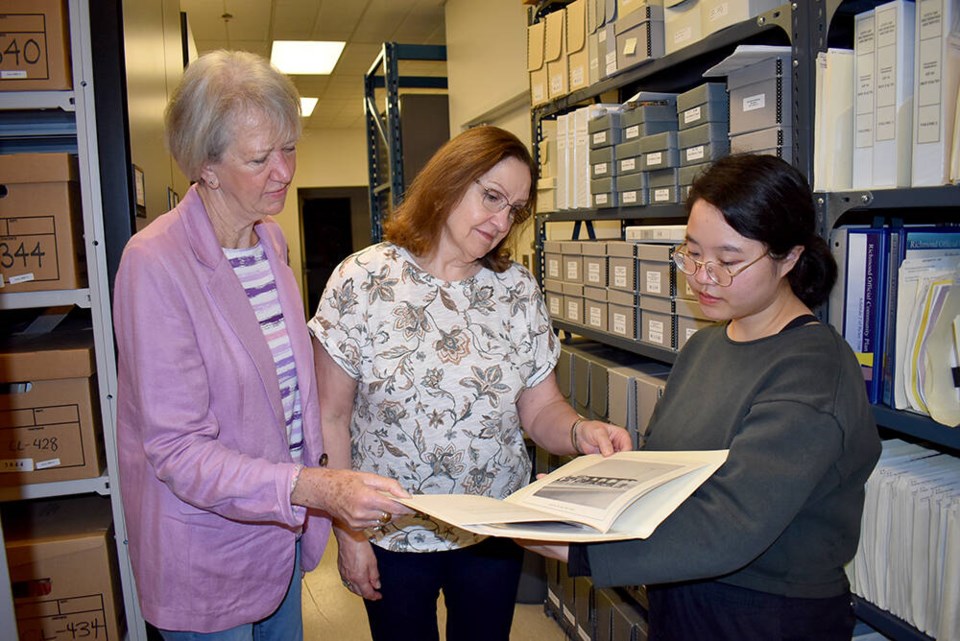It was by chance that Jackie Brown found a sticky note written by her late mother with some final requests for her inheritance.
While a will had been written by Dody Wray, a long-time member of the Friends of the Richmond Archives, her daughter found a final wish — on a Post-It note in her buffet cabinet — that hadn’t been incorporated into the legal documents.
$25,000 was to go to the Regional Animal Protection Society, and $25,000 was for the City of Richmond Archives.
Brown said there was no question about following her mother’s final wishes, whether it was stamped by a lawyer or not.
And thanks to the donation to the archives, 26 bankers boxes of video tapes of Richmond political and social events will be inventoried, more city records will get digitized, planning slides from the 1980s and 1990s will get archival descriptions, and a new photographic history about education in Richmond has been created.
“Mom was very, very interested in the history of Richmond, coming from both the Blair family and, on her maternal side, the Thomas Kidd family – so she was always very interested in learning and seeing the history of Richmond maintained,” Brown explained.
Using the donation from Dody Wray and enhancing it with a federal grant, the city archives was able to hire an intern — Lily Liu who is currently doing a master’s in library and archival studies at UBC — to do this work.
Starting early in September, she began her time at the archives with the history of education in Richmond. This is currently on display at the cultural centre along with artifacts from the museum about education.
Liu said starting with the photo history about education was a good way to look into Richmond’s history.
This includes information about a Japanese school on Sea Island which closed when the Japanese Canadians were interned during the Second World War. Reading about the history of segregation of Japanese Canadians was “hard to go through” for Liu.
“You’re holding a record, you’re looking at the oral histories and the sombre quality, the solemn, sombre quality of the history of Richmond’s education — it just hits you in that moment,” Liu said.
With the education project behind her, Liu will now be focusing on three other projects.
Liu will be making sure the digitized copies of city records have standard descriptors using the correct key words and subject terms so that they are easily retrievable for researchers.
Some of the 100,000 records she’ll be tackling include zoning bylaws, annual reports and Official Community Plans.
“There are so many random miscellaneous (records),” Liu said.
The process of describing records is “very abstract” in school, Liu said, so she’s pleased she can work with actual records and learn the practicial work of an archivist within the setting of the city archives.
“Records are very messy and they don’t always fit neatly into a description and definitions,” Liu said. “You have to go into the ‘wild’ – into the physical archives – and bump around the corners.”
Liu will also be working on a collection of planning and development slides from the 1980s and 1990s that feature buildings, subdivisions, farming activities and industry.
The last project is to create a detailed inventory of 26 banker boxes of videotapes from Rogers Community 4, a community television channel, which includes recordings of council meetings, special forums about development and other community issues, teen programming and local television coverage.
Got an opinion on this story or any others in Richmond? Email your thoughts or story tips to [email protected].



